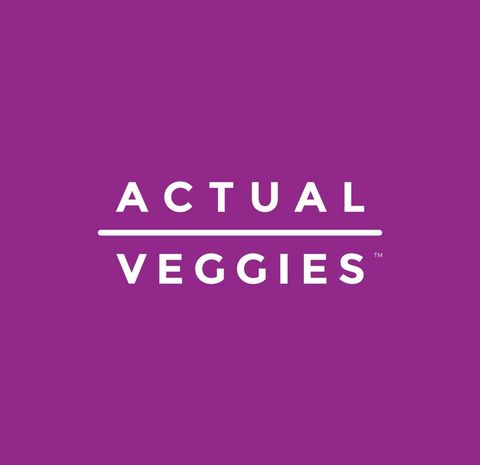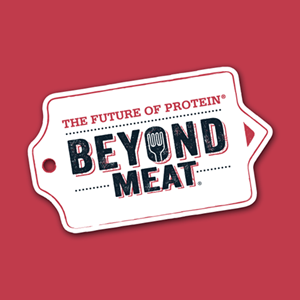The De-Evolution of the Alt-Meat Revolution

You operate in a dynamic world, increasingly transforming in step with consumer preferences and economic upheaval. We are here to help you navigate it. Presenting the Nosh Trendlines Report, a series of informative articles on the latest evolutions – or revolutions – changing operations, retail distribution, product formulation, marketing and more. If you’re sensing a major shift in your business, let us know – chances are, you aren’t the only one.
The novelty of a “bleeds-like-meat” burger seems to have worn off for consumers, investors and the industry alike. As CPGs at-large turn to formulate with simpler and shorter ingredient decks, the meat alternative category is following along.
To kick off the year, Whole Foods named “putting plants back in plant-based” as one of its top trend predictions for 2024. The natural retailer said it identified the trend as a move away from “highly processed meat alternatives” toward plant-centric products made from “mushrooms, walnuts and legumes.”
“It extends to plant-based milks as well, with an emphasis on minimal ingredient lists, with products that contain just two simple ingredients,” said Alyssa Vescio, SVP of center store merchandising, sourcing and product development at Whole Foods. “You can see this trend gaining momentum with home cooks using specialty varieties of produce for main dishes, and in our aisles through brands like Atlantic Sea Farms and their Basil Pesto Sea-Veggies Burgers.”
These vegetable-forward formulations and traditional processing techniques are a far cry from high-tech, “bleeding” burgers and lab-grown woolly mammoth meatballs. Even category leader Beyond Meat has also recognized this current and introduced a new, cleaner formulation that brings avocado oil to the forefront. The new product base is slowly rolling out across all Beyond Meat formats.
Beyond Meat’s move to simplify comes as the brand is pressured by competition from mycelium-based Meati. The former alt-meat player credits its simple ingredient list for its success: It has expanded to 6,000 retail doors nationwide, including Super Target, Whole Foods Market, Sprouts Farmers Market, Meijer, Wegmans and, most recently, Kroger. The product’s single-ingredient formulation has given it an edge in a world where discourse around plant-based protein alternatives often converges with discussions of ultra-processed products.
Also riding this simple high: Actual Veggies. The aptly named plant-based protein brand prioritizes whole foods and simple ingredients across its frozen veggie burger and SuperFries lines. Co-founder and co-CEO Hailey Swartz told Nosh in May that the brand’s veggie burgers are among the top two in their category, and its Black Bean variety is the top seller in its category “at many” retailers.
During the Wall Street Journal Global Food Forum last week, investors from Manna Tree and Flagship Pioneering both emphasized that today’s consumers are less concerned about whether a product is animal-derived or plant-based, but rather how that product was cultivated and that process’s impact on the planet.
“The unifying component [in the protein conversation has] been clean ingredients, transparent supply chain and brands that you can trust and feed your kids,” said Gabrielle Rubenstein, co-founder and managing partner of Manna Tree. That puts the impetus on brands to prioritize animal welfare at the farm level and begin taking a different approach to marketing.
Apparently, that extends past meat alternatives to the real stuff: Rubenstein cited Manna Tree portfolio company Verde Farms as an example of how the Uruguayan regenerative beef business has straddled these consumer demands.
“They’ve been talking about clean ingredients [and] low-sugar versus plant-based or meat…Down in Latin America, beef is beef. There’s no plant-based, there’s no grass-fed, there’s no regenerative, it’s just called beef, and it’s the purest form of meat you can get: the animals grazing on the land. That is what consumers want, and that’s also what they expect.”
That’s a bet against ideas like cell-cultured proteins. According to Rubenstein, consumers don’t really want technology in their food: “What they want is technology to help them have the brands that they trust reach them faster, better and cheaper,” she said.
The Good Food Institute (GFI) would push back against that: Although 60% of respondents in a recent poll said they weren’t familiar with cell-based meat, more than 60% of people surveyed expressed an interest in trying those cultured products.
But investor interest also appears to be waning. In 2023, cultured meat and seafood companies raised $225.9 million globally, a sharp decrease from the $922.3 million raised in 2022 (though food and beverage startup funding is down across the board).
And there’s been increased pushback on the regulatory front as well claiming the food tech innovation is a direct assault on the meat industry, states like Florida, Iowa and Alabama have barred the sale of cell-cultured meat, even before it really starts coming to market. Other states are weighing similar legislation. House legislators introduced the REAL Meat Act of 2024 to prohibit federal funding to go towards research and development in cultured meat alternatives. France, Austria and Italy have also gone directly after the nascent category under the guise of protecting traditional farmers.
Read more: Nosh Trendlines Report
Thanks for reading! Our five-part series is designed to help you navigate a dynamic operating environment. Click the links below to read more.






















